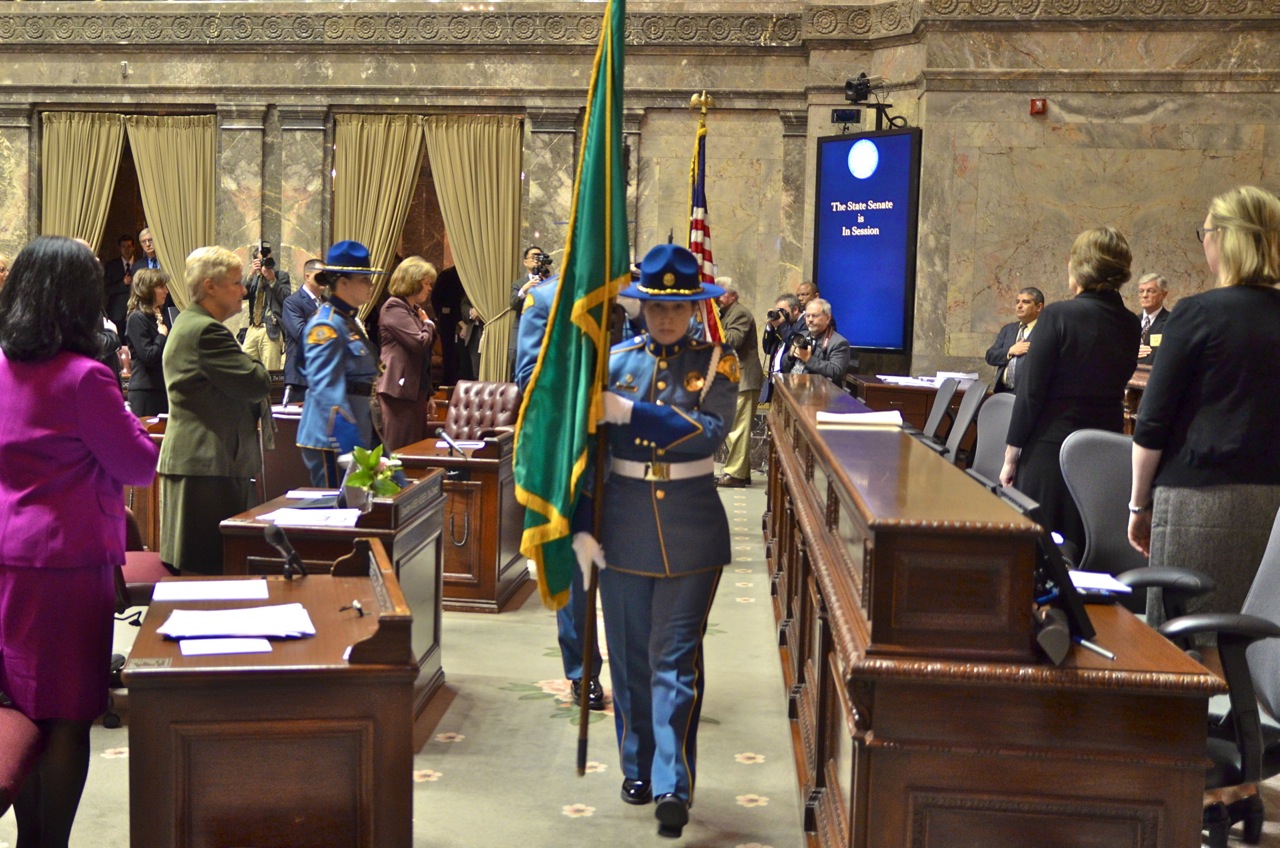
The 2015 Washington State Legislature kicked off Monday with a new rule that makes it harder for the Senate to pass tax increases — a new requirement for a two-thirds majority approval to pass tax increases in that chamber.
The new rules would apply to bills in the Senate, which is controlled by the Majority Coalition Caucus. The House of Representatives, which has a Democratic majority, did not consider a similar rule. Tax increases in this Legislative session, however, would have to pass both chambers before becoming law.
The rules included a clause that would require bills proposing new tax increases to get a two-thirds supermajority approval of the Senate before advancing to third reading. The exception would be to bills that send the tax increases to the voters in a referendum.
The Senate approved the rules with 26 yes votes.
Senate Majority Leader Mark Schoesler (R-Ritzville), told TVW before the opening day ceremonies he believed the voters of the state would support the change.
In 2012, 64 percent of Washington voters approved Initiative 1185, which created a requirement of two-thirds majorities in the House and Senate — or voter approval — to pass tax increases. 1185 passed in every county. It was similar to previous initiatives, including Initiative 1053 which also passed by 64 percent in 2010.*
“The two-thirds majority requirement was approved by nearly every county we represent,” Schoesler told Anita Kissee of The Impact.
However, the State Supreme Court struck down 1185 initiative as being unconstitutional in 2013. The state Constitution requires a simple majority in the Senate to pass.
The change could make it more difficult for legislators to pass key parts of Gov. Jay Inslee‘s budget proposal, which includes a new capital gains tax and a tax on polluters for carbon emissions.
Sen. David Frockt (D-Seattle) cited the court decision and the state Constitution as a reason to vote against the rule change. He proposed his own amendment that would have required a two-thirds majority to approve the rule change.
“We are proposing a Senate rule that goes around the Constitution,” he said. “This is no different of any rule that needs to be enforced. We can’t have one set of rules for us, that aren’t in the Constitution.”
Sen. Joe Fain (R-Auburn) argued that the rule does not include closing tax loopholes and acting on existing taxes, which means that there are still ways for the Senate to propose revenue increases without the two-thirds majority approval.
“It only would impact things like a capital gains tax or an income tax or a radical change in the tax structure of our state,” he said.
But Sen. Andy Billig (D-Spokane) said that the bill hurts moderates, because 17 members of the Senate can block an increase.
“In my view this set of rules is about preventing members of the majority from moving to the center to work on compromise,” he said. “The solutions come usually from the political middle…. This set of rules is a recipe for gridlock.”
Sen. Michael Baumgartner (R-Spokane) said the rules change will force the Legislature to think of ways to address budget issues other than raising taxes.
“While I wish we could have applied this rule to all taxes that might come before the Legislature this session, applying it to new taxes is still very significant,” he said in a prepared statement released following the rule change. “This will make it much more difficult for Gov. Jay Inslee to pass his misguided proposals for cap and trade and a new capital gains tax.”
*An earlier version of this post incorrectly stated the most recent supermajority tax approval initiative.